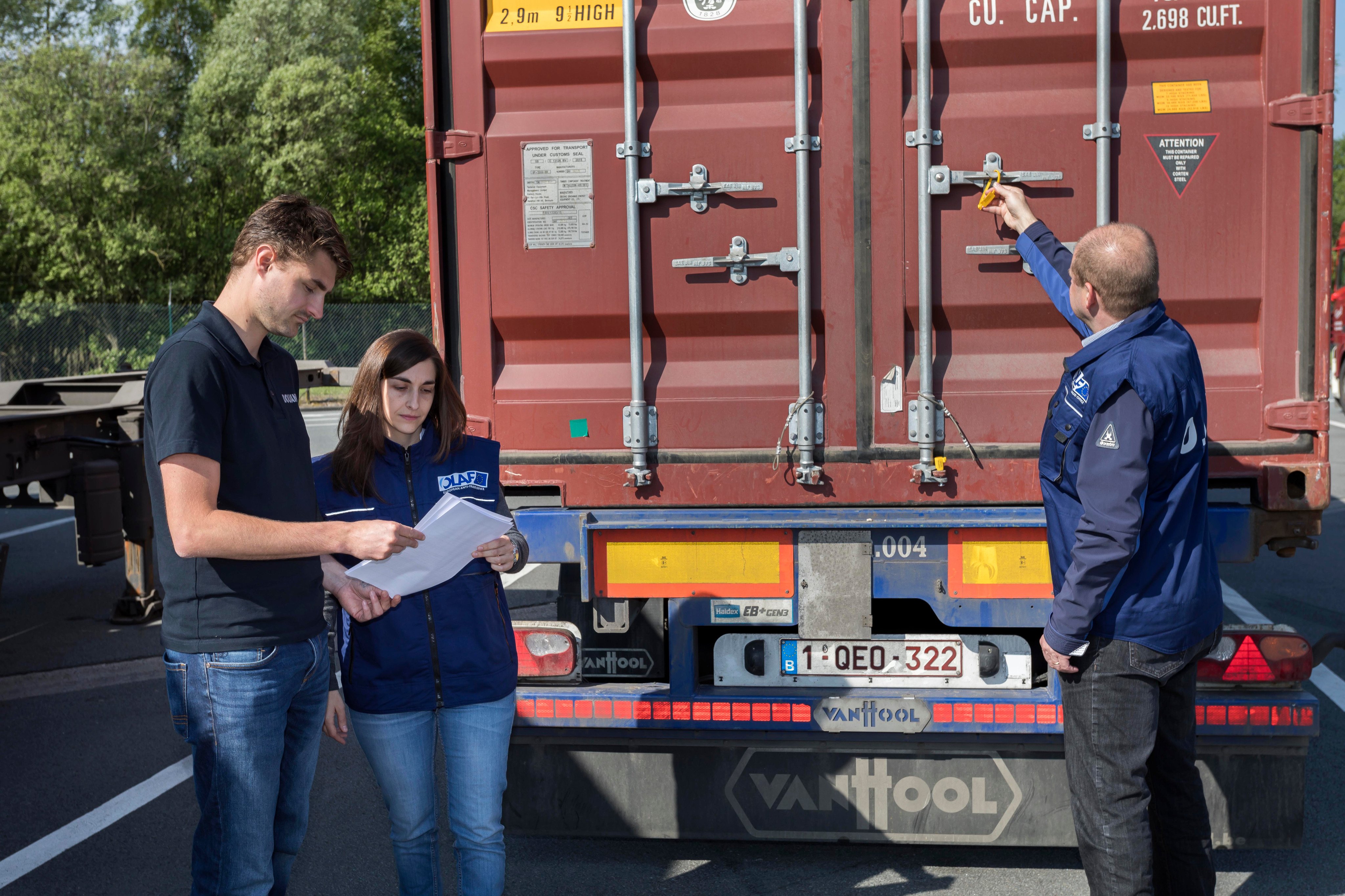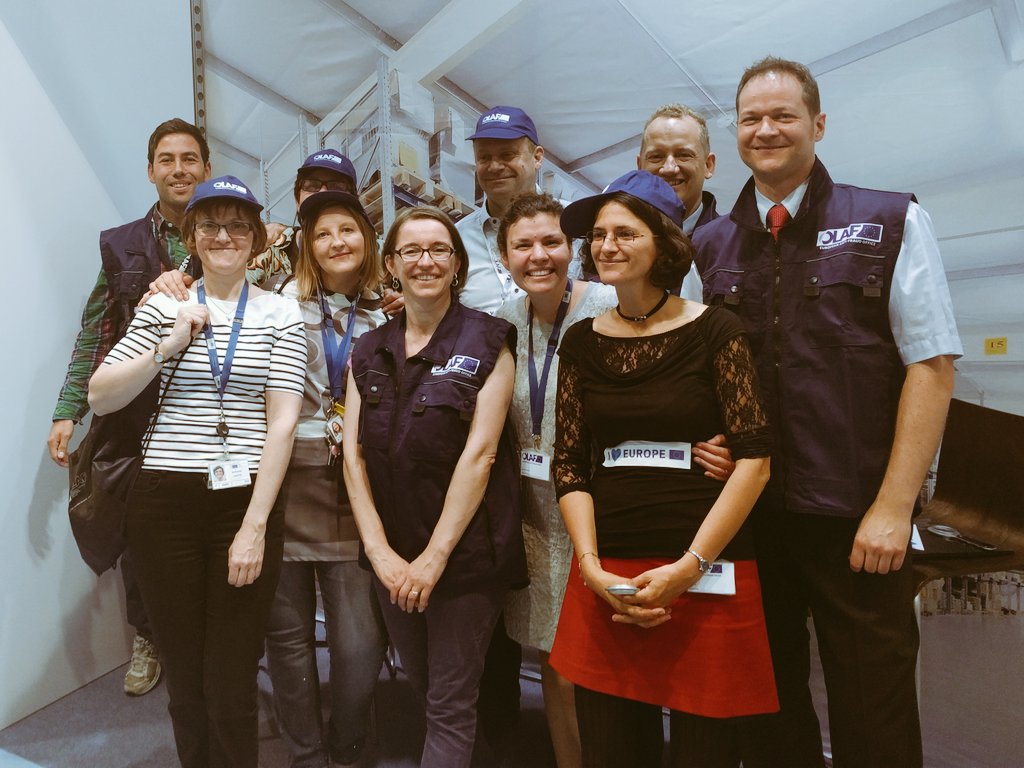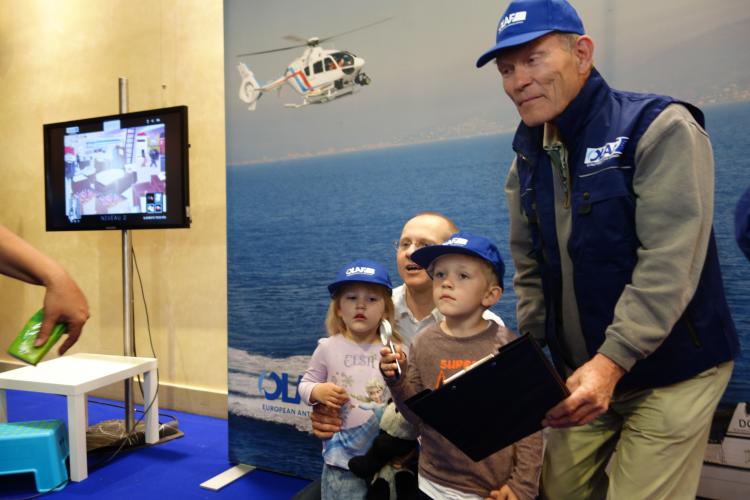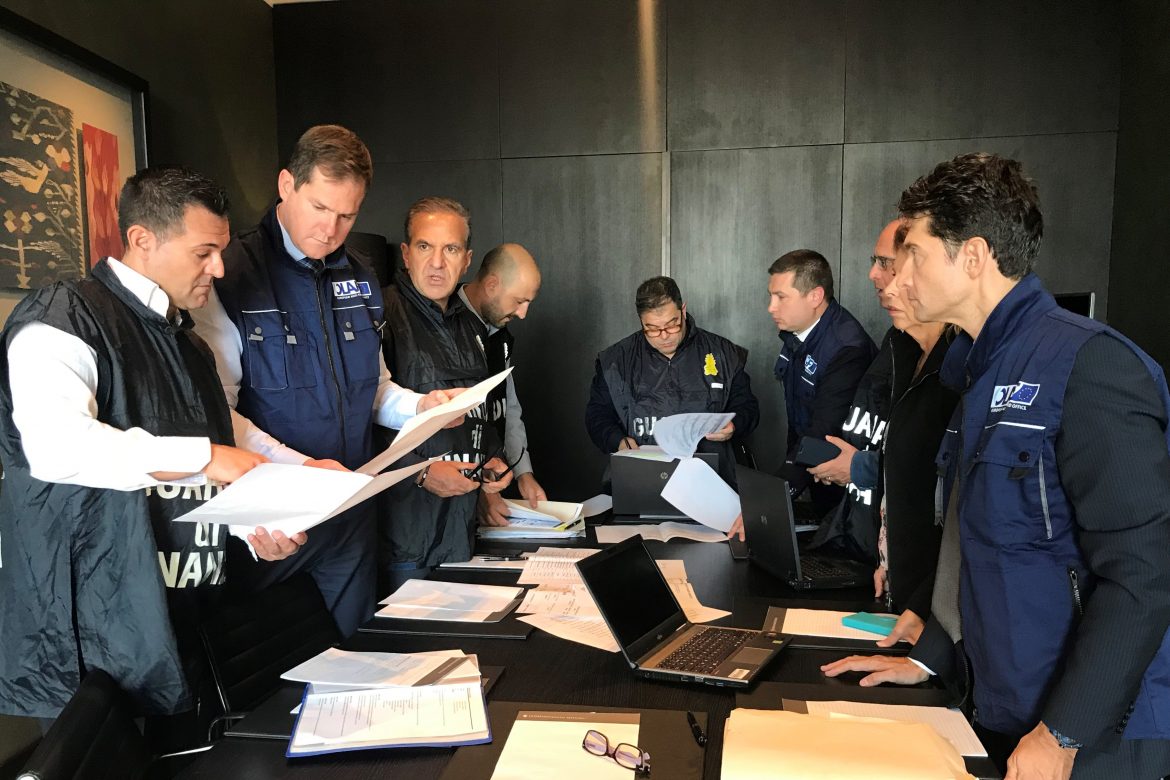The main anti-corruption agency of the European Union is the European Anti-Fraud Office (OLAF), founded by the European Commission in 1999. It is an independent organization working with national agencies. How it fights fraudsters, which violations are the most frequent in Europe and how the unified European prosecutor’s office will work – all these topics in the new exclusive interview by Anticorr.media with the director of investigations support OLAF Beatrice Sans Redraddo.
– What was the OLAF created for and what are the principles of the Bureau’s work?
For the past 20 years, OLAF has been a key player in protecting the EU budget against fraud, corruption and other illegal activities, both on the revenue and on the expenditure side. OLAF is contributing to the safety and security of Europeans and to upholding the reputation of the EU institutions and bodies. OLAF’s mission is to support a competitive and fair Europe that protects its citizens and their money.
OLAF’s administrative investigations result in recommendations to EU institutions and bodies or to Member State authorities. OLAF does not have law enforcement powers but that does not mean that its investigations do not bite. Between 2010 and 2018, OLAF has successfully investigated nearly 2000 cases and recommended almost €7 billion for recovery.
– What are the results of 2018? What damage did corruption in Europe cause? How much did you manage to return to the EU budget?
Our results for 2018 will be published with our next annual report in early September. OLAF is not itself responsible for the recovery of these funds. Relevant authorities at EU and Member State level can retrieve this money from the beneficiaries of the funds, national managing authorities or paying agencies in a number of ways, including direct recovery, offsetting, deduction, de-commitment, programme closure or clearance of accounts.
– According to your data, what is the average size of a bribe in Europe at the moment? What violations most often come across?
We do not have any available figures on average bribes. In 2017, our investigations revealed the following most striking fraud trends:
- Corruption, conflict of interest and the manipulation of tender procedures in fraud cases affecting EU structural funds, sometimes with the involvement of organised crime groups
- Fraud with research funds
- The evasion of customs duties orchestrated through transnational criminal schemes.

– What is the trend like? Can we talk about reducing the level of corruption in EU or it grows? In which countries are there serious problems?
We do not have statistics on the level of corruption in the EU and would not like to make assumptions. We can only talk about OLAF investigations or cases of suspected and established fraud reported by the national authorities. However, a higher level of reported fraud may just be an indication that the anti-fraud systems in a particular Member State are working well and that its reporting obligations are being met compared to other Member States. In other words, a high level of fraud or irregularity reporting should not, per se, be taken to mean that one Member State is more prone to fraudulent activity than another.
– Where does OLAF receive information about a possible corruption offense? Does the OLAF have the authority to request data from national law enforcement agencies?
OLAF receives information on possible fraud from various sources: public or private sources at national level, journalists, internal EU whistleblowers or private individuals. They may report fraud anonymously or not, in any of the 24 official EU languages and through various channels (by post or via an online fraud notification system).
OLAF cooperates and exchanges information with national authorities in multiple ways. This is based on Article 325 of the Treaty on the Functioning of the EU and on OLAF Regulation No. 883/2013 (for instance, Article 8) as well as on other EU regulations.
– EPPO will open in a year. Why is it necessary?
The EPPO will be the first ever independent EU prosecution office and it will be responsible for investigating and bringing to justice those who commit an offence against the financial interests of the EU such as fraud, corruption or serious cross-border VAT fraud.
The creation of the EPPO marks a fundamental development in the fight against crimes affecting the EU budget. It is also an important step towards creating a common criminal justice area in the European Union as a whole. Fraud affecting the financial interests of the EU is often complex, involving criminal actors in several Member States. Combating fraud in these situations means dealing with different criminal law systems, a complicated variety of competence attributions, complex judicial cooperation, linguistic differences, a lack of resources and different prosecutorial priorities. Currently, only national authorities can investigate and also prosecute cases of fraud affecting the financial interests of the EU and their competence stops at their respective borders.
The EPPO will be able to act quickly across borders without the need for lengthy judicial cooperation proceedings. This should lead to more successful prosecutions and help to recover defrauded money more efficiently.
– Will the decision of this department be higher than the decision of the national prosecutor’s office?
The EPPO will conduct its investigations independently from the national prosecutor’s office.

– Will it have judicial powers to oblige national law enforcement authorities to act on its follow-up recommendations?
The EPPO will not issue recommendations. It will have the power to directly order national authorities to carry out investigative measures, the same way that national prosecutors do today in the Member States. The European Delegated Prosecutors will carry out the investigations and prosecutions in the participating Member States hand in hand with the national police and law enforcement agencies. The EPPO will also be able to rely on the support of OLAF – which may provide it with expertise, analytical capacity and operational support – as well as that of Eurojust and Europol.
– The media call Laura Codruţa Kövesi as the main candidate for the role of the EU prosecutor. What could you say about her candidacy?
This is not something we can comment on.
– What effective measures exist to protect the European Budget from corruption?
We work closely with Member States and other European Institutions to prevent or discourage fraud and corruption affecting the EU budget. As funds are spent at Member State level, the Commission recommends that States:
- further exploit the potential of risk analysis, tailoring the approach to the different types of expenditure and taking advantage of best practice and the risk elements highlighted in the report on the Protection of the EU’s financial interests (PIF report);
- facilitate and assess the spontaneous reporting of potential irregularities and strengthen the protection of whistleblowers, who are also a crucial source for investigative journalism; Strengthen whistleblower protection at EU level
- promote systematic and timely cooperation between judicial and administrative authorities.
OLAF works directly with EU countries to improve fraud prevention policy and practice, largely through the Advisory Committee for the Coordination of Fraud Prevention (COCOLAF)
COCOLAF coordinates how the European Commission and its Member States go about combatting fraud involving EU money.
The participants are representatives from the competent national services of the Members States and from Commission services. It is managed by OLAF on the Commission’s behalf.

The Commission is represented in the Committee by:
- OLAF
- The Commission services responsible for the revenue side of the EU budget (Directorates-general for Budget and for Taxation and Customs Union)
- The Commission services responsible for shared management funding
- Other horizontal services (Directorate-general for the Internal Market, Industry, Entrepreneurship and SMEs and the Commission Legal Service etc.).
There are also expert sub-groups for different policy areas. These sub-groups:
- stimulate cooperation among specialised national fraud prevention services
- share operational experience
- raise awareness of fraud.
For example, COCOLAF’s Fraud Prevention subgroup has recently published Fraud in public procurement – a collection of red flags and best practices, containing example cases, red flags, solutions and best practices that are grouped thematically.
And lastly, a strong OLAF has an important deterrent role for fraudsters. A well-working Office, with an impressive background of cases, makes those thinking of committing fraud think twice before breaking the law.
– Does the OLAF do a sort of anti-corruption education in Europe?
Yes, OLAF regularly informs the public and the media about its anti-fraud actions: we often receive visitors at OLAF’s headquarters who receive presentations on our work and OLAF staff participate in back-to-school initiatives (where they go back to their former schools to inform pupils about OLAF and its activities). We also coordinate EU-wide communication actions about our cross-EU anti-fraud work with our network of spokespersons and communication officers from our partner services in the member states (OLAF’s Anti-Fraud Communicators’ Network – OAFCN).

– Can a EU citizen or a businessman contact the OLAF with a message about corruption? Сan OLAF help him if he faced with administrative pressure in his country?
Yes, an EU citizen or businessman can report fraud to OLAF. If, following this, he/she is faced with administrative pressure in his country, he/she should contact the national Ombudsman. Specific protection is foreseen for whistleblowers.
– Theoretically, EU institutions may not follow the recommendations and not take any action. What does OLAF do in that cases? How can OLAF motivate EU-members to start investigations?
From January 2015 to December 2017, OLAF made 58 disciplinary recommendations following investigations into EU staff. In only 16 instances, the recommendations were not followed by the Institutions. This happened for different reasons, such as the person concerned resigning before the procedures were launched, or by addressing the issue through other administrative means.
Pursuant to OLAF judicial recommendations, the indictment rate is 42% across Europe. This is a positive outcome, but there is room for improvement. The establishment of an EPPO will certainly help bring fraudsters to justice more swiftly.
OLAF undertook an analysis of the decisions by which national authorities in a number of Member States determined not to pursue cases following OLAF judicial recommendations. This identified a tendency among some national prosecutors not to consider cases where the damage is to EU interests with the same level of priority as where national interests are concerned.
While it is not for OLAF to question the validity of national prosecutors’ decisions to dismiss individual cases, several issues stood out. In some Member States, it appears that art. 11§2 of Regulation 883/2013 is not a sufficient legal basis to allow all the judicial authorities to use the OLAF final reports as evidence in trial, while in others this legal basis is considered sufficient. Therefore, after receiving the OLAF final report, some Member State prosecutors need to carry out all the investigative activities once again in order to acquire admissible evidence, though it was already originally provided by OLAF. This lengthens the national procedures and may result in lack of indictments. Another reason is that when it comes to instances of transnational fraud, OLAF is the only investigation body capable to investigate such cases. Some national prosecutors therefore dismiss such cross-border cases because it would be excessively difficult for them to carry out investigative activities in numerous countries. In other cases, dismissals can be motivated by limited knowledge of the rules governing EU funding. Sometimes, facts that OLAF investigators consider as fraudulent are not considered as such by prosecutors.
OLAF is in constant dialogue with Member States’ judicial authorities to try to improve this indictment rate. The creation of the EPPO should also help address this challenge, leading to more prosecutions, convictions and a higher level of recovery.
– The media writes about a possible case regarding the leader of the Brexit Party Nigel Farage. What are the latest news on this story, did the OLAF find signs of violations? How long does it usually take to carry out an assessment?
We are aware of the press reports and public statements on the matter you are referring to. As a general rule, OLAF analyses incoming information of potential investigative interest according to standard procedures. Specialised experts evaluate this information to find out whether:
- it falls within OLAF’s competence to act (i.e. it relates to OLAF’s mandate to protect the EU’s financial interests, if for example EU funds are involved etc.),
- there is sufficient suspicion of fraud, corruption or any illegal activity affecting the EU’s financial interests for OLAF to open a case (Regulation 883/2013), and,
- consideration may also be given to whether such information falls within the investigative policy priorities of OLAF.
It is only after such an initial assessment, which is currently ongoing, that OLAF decides whether or not to open an investigation. Please note that the fact that OLAF will assess the information received does not mean that the individuals in question are guilty of any wrongdoing. OLAF fully respects the presumption of innocence.
In 2017, the average duration of our assessments was 1.8 months (not to be confused with the later investigation phase, which lasts on average 15.8 months).
Interview by Andrey Yushin


